Filter by
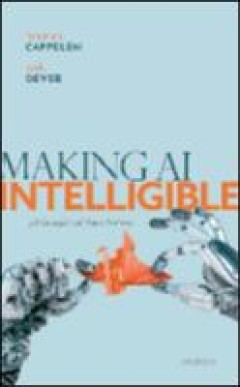
Making ai intelligible: philosophical foundations
Can humans and artificial intelligences share concepts and communicate? One aim of Making AI Intelligible is to show that philosophical work on the metaphysics of meaning can help answer these questions. Cappelen and Dever use the externalist tradition in philosophy of to create models of how AIs and humans can understand each other. In doing so, they also show ways in which that philosophical …
- Edition
- 1.
- ISBN/ISSN
- 9780192894724
- Collation
- viii, 175p.
- Series Title
- -
- Call Number
- 004.019 CAP m
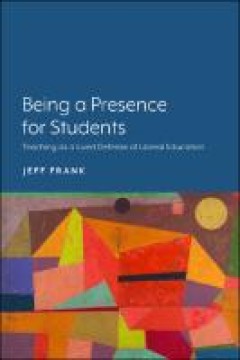
Being a presence for students : teaching as a lived defense of liberal education
This book offers a lived defense of liberal education. How does a college professor, on a daily basis, help students feel the value of liberal education and get the most from that education? We answer this question, as professors, each day in the classroom. John William Miller, a philosophy professor at Williams College from 1924-1960 and someone noted for his exceptional teaching, developed on…
- Edition
- -
- ISBN/ISSN
- 9781643150086
- Collation
- VIII, 135 p.
- Series Title
- -
- Call Number
- 370.112 FRA b
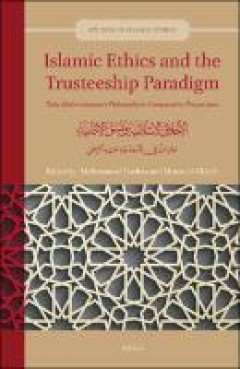
Islamic ethics and the trusteeship paradigm : Taha Abderrahmane's philosophy …
Islamic Ethics and the Trusteeship Paradigm explores the emerging ethical theory examines the development of this modern Islamic theory of the trusteeship paradigm as developed by the Moroccan philosopher Taha Abderrahmane (b. 1944). The volume, with contributions in English and Arabic, examines the development of this modern Islamic theory of ethics and how it permeates various disciplines: ph…
- Edition
- -
- ISBN/ISSN
- 9789004438354
- Collation
- XVII, 364 p.
- Series Title
- Studies in Islamic Ethics, 3
- Call Number
- 297.5092 ISL i
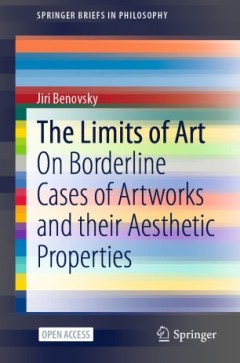
The limits of art : on borderline cases of artworks and their aesthetic prope…
This open access book is about exploring interesting borderline cases of art. It discusses the cases of gustatory and olfactory artworks (focusing on food), proprioceptive artworks (dance, martial arts, and rock climbing qua proprioceptive experiences), intellectual artworks (philosophical and scientific theories), as well as the vague limits between painting and photography. The book focus…
- Edition
- -
- ISBN/ISSN
- 9783030547950
- Collation
- ix, 57p. : ill.
- Series Title
- -
- Call Number
- 146.4 BEN l
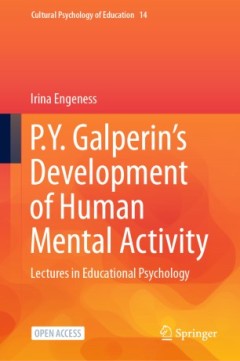
P.Y. Galperin's development of human mental activity : lectures in educationa…
This open access book introduces the legacy of Piotr Galperin to a wider audience of researchers, educators and psychologists. Previous translations of Galperin’s work present only some aspects of his conceptual thinking; however, his main contribution to the general, genetic and pedagogical psychology as a unique holistic and systemic approach to studying of psychological phenomena and proc…
- Edition
- -
- ISBN/ISSN
- 9783030640224
- Collation
- lx, 126p. : ill.
- Series Title
- -
- Call Number
- 370.15 ENG p
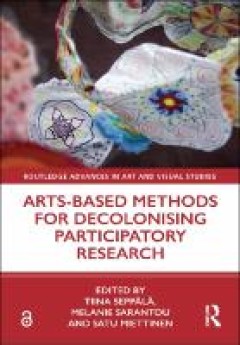
Arts-based methods for decolonising participatory research
In an effort to challenge the ways in which colonial power relations and Eurocentric knowledges are reproduced in participatory research, this book explores whether and how it is possible to use arts-based methods for creating more horizontal and democratic research practices. In discussing both the transformative potential and limitations of arts-based methods, the book asks: What can arts-bas…
- Edition
- -
- ISBN/ISSN
- 9781003053408
- Collation
- XIV, 264 p.
- Series Title
- Routledge Advances in Art and Visual Studies
- Call Number
- 700.103 ART a
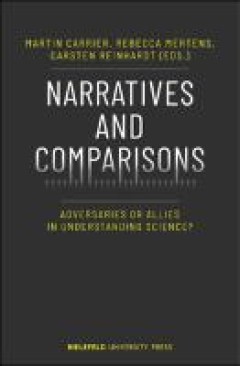
Narratives and comparisons : adversaries or allies in understanding science?
As a powerful tool in the production of knowledge, comparing plays a crucial part in the sciences and the humanities. This volume explores the relationship between comparing and narrating in epistemic practices and clarifies the ways in which narratives enable or impede practices of comparing. It takes into account related activities, such as measuring and classifying, modeling, establishing no…
- Edition
- -
- ISBN/ISSN
- 9783839454152
- Collation
- 202 p.
- Series Title
- -
- Call Number
- 501 NAR n
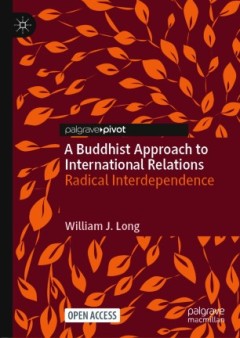
A Buddhist approach to international relations : radical interdependence
This book is an open access book. Many scholars have wondered if a non-Western theory of international politics founded on different premises, be it from Asia or from the “Global South,” could release international relations from the grip of a Western, “Westphalian” model. This book argues that a Buddhist approach to international relations could provide a genuine alternative. Because o…
- Edition
- -
- ISBN/ISSN
- 9783030680428
- Collation
- xi, 107p. : ill.
- Series Title
- -
- Call Number
- 327.101 LON b
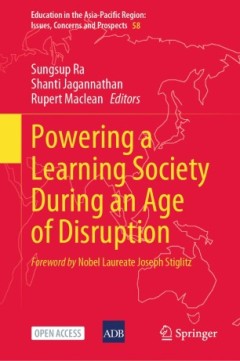
Powering a learning society during an age of disruption
This open access book presents contemporary perspectives on the role of a learning society from the lens of leading practitioners, experts from universities, governments, and industry leaders. The think pieces argue for a learning society as a major driver of change with far-reaching influence on learning to serve the needs of economies and societies. The book is a testimonial to the importa…
- Edition
- -
- ISBN/ISSN
- 9789811609831
- Collation
- xvii, 321p. : ill.
- Series Title
- -
- Call Number
- 374 POW p
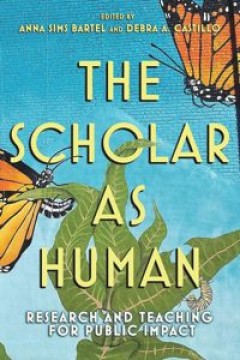
The scholar as human : research and teaching for public impact
The Scholar as Human brings together faculty from a wide range of disciplines—history; art; Africana, American, and Latinx studies; literature, law, performance and media arts, development sociology, anthropology, and Science and Technology Studies—to focus on how scholarship is informed, enlivened, deepened, and made more meaningful by each scholar's sense of identity, purpose, and place i…
- Edition
- -
- ISBN/ISSN
- 9781501750632
- Collation
- VI, 265 p.
- Series Title
- -
- Call Number
- 378.103 SCH s
 Computer Science, Information & General Works
Computer Science, Information & General Works  Philosophy & Psychology
Philosophy & Psychology  Religion
Religion  Social Sciences
Social Sciences  Language
Language  Pure Science
Pure Science  Applied Sciences
Applied Sciences  Art & Recreation
Art & Recreation  Literature
Literature  History & Geography
History & Geography